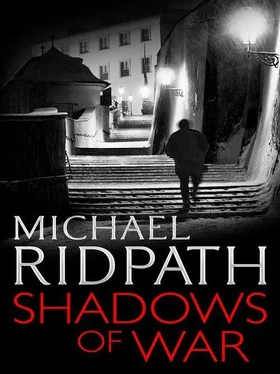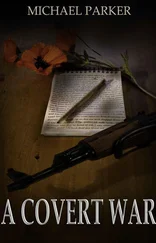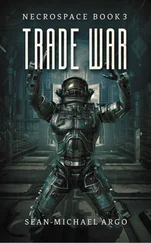Medals were handed out all round, Schellenberg and four of the others received an Iron Cross First Class, and the rest Iron Crosses Second Class.
Payne Best and Stevens were locked up somewhere in the Gestapo building next door. Schellenberg hadn’t been directly involved in their interrogation: the Gestapo were still pretending to their prisoners that Major Schämmel was a real conspirator. The officers who were interrogating them had been unable to unearth even the remotest connection between the two British agents and Georg Elser, the man who had planted the bomb in the beer cellar in Munich. But Hitler had also ordered Schellenberg to discover the name of all British operatives in Holland, and there had been some success there.
Major Stevens had been carrying a sheet of paper on which various Dutch names had been written: the Abwehr had confirmed that some of these were known agents working for Britain. It seemed likely to Schellenberg that the whole lot were.
Only that morning Stevens had admitted under interrogation that the driver, who had escaped, was a British officer named Conrad de Lancey, who had been spotted in Leiden talking to a Lieutenant von Hertenberg. The British knew him to be an Abwehr officer.
Schellenberg was pleased to see that de Lancey’s file was waiting for him on his desk, as he had requested. The Gestapo filing system was its great strength. A vast, meticulously cross-indexed record of the little secrets of thousands of Germans, and, increasingly, foreigners like de Lancey.
Schellenberg picked up the file and leafed through it. Most of the memoranda had been prepared by Kriminalrat Klaus Schalke. Schellenberg remembered him, a big, shambling Gestapo officer who was a favourite of Heydrich’s and had been found murdered in the Tiergarten the previous autumn.
The Hon. Conrad de Lancey had been born in Hamburg in 1911. His father, Viscount Oakford, was a former member of the British government and his mother was a daughter of one of the big Hamburg shipping families. De Lancey had gone to university at Oxford and afterwards had fought for the International Brigade in the Spanish Civil War. He had arrived in Berlin in the summer of 1938, where he had quickly aroused Schalke’s suspicions. The Gestapo had arrested him with his cousin, Joachim Mühlendorf, who worked for the German Embassy in Moscow and turned out to be spying for the Russians. Mühlendorf had died in custody, but de Lancey had been released. A few weeks later, Schalke had ordered de Lancey’s arrest again. De Lancey had been seen with Lieutenant Hertenberg, and at one point Schalke had suspected Hertenberg of hiding him.
Then nothing.
Schellenberg had scarcely known Schalke at all, but his death that September had caused quite a stir. There were rumours that Schalke had been involved in altering Heydrich’s ancestry, erasing a Jewish grandparent. Or perhaps adding one. The rumours were vague and brief. No one in the Gestapo wanted to know anything about Heydrich’s Jewish roots. The investigation into Schalke’s death had been abandoned on the orders of Heydrich himself and the whispers stopped abruptly. There were some subjects you just didn’t whisper about.
So who was this Conrad de Lancey? What was Hertenberg up to? And what did it have to do with Heydrich?
De Lancey could be a spy being run by the Abwehr. Or Hertenberg could be a spy being run by the British secret service. Admiral Canaris might know. Given the involvement of Schalke, Heydrich might know. Asking Heydrich would be stupid. Dropping a casual word to Canaris while riding with him in the Tiergarten might elicit an interesting answer. But then Heydrich would find out that Schellenberg had been asking questions and that might turn out to be stupid too.
Schellenberg needed more information. Following the seizure of the British agents, a number of his officers had been assigned to Holland. One of them should keep a quiet eye on Hertenberg.
Whitehall, London
Still furious with his father and Theo, Conrad left Kensington Square to report to Van at the Foreign Office. His brain was in turmoil as he waited in an ante-room for the Chief Diplomatic Adviser. The reality of Millie’s death was pressing in on him, grief piercing through the anger, slowly at first, but more insistently with every minute.
When Mrs Dougherty eventually told him Van was ready to see him, it took a supreme effort of will to focus on his report. He expanded on his cryptic phone call from Amsterdam describing what Theo had told him about Captain Schämmel and the Venlo affair. Then he explained why he had gone to Paris. About Theo and Bedaux. And about the Duke of Windsor.
Van’s concern was obvious. Concern tinged with anger, not at Conrad but at the former king. But not as much surprise as Conrad would have expected.
‘I need hardly tell you that what you have outlined to me now is highly sensitive,’ Van had said. ‘Please do not repeat it to anyone. Clearly an allegation that a member of the royal family is a traitor is extremely serious. I can assure you that we will investigate it thoroughly, but until then, it’s just a suspicion. Leave it with me. And thank you.’
Conrad stood up to leave. ‘By the way, de Lancey,’ Van said, his voice uncharacteristically soft. ‘I heard about your sister’s murder yesterday morning. I am sorry. I met her on a couple of occasions: a lovely girl. Please accept my condolences for you and for your family, especially Lady Oakford.’ His voice hardened. ‘But tell your father to restrain himself with these independent peace initiatives. They cause all kinds of diplomatic mayhem. And after what happened at Venlo, and what befell your poor sister, it appears they are extremely dangerous.’
‘I quite agree, Sir Robert,’ said Conrad. ‘But my father ceased to listen to me on those matters long ago.’
‘We think we know who killed her,’ Van said.
Conrad looked at him sharply. ‘Who?’
‘I received a report from our intelligence services an hour ago, which sheds some light on it, although it also casts doubt on your information about the duke. Apparently her companion Mrs Scott-Dunton followed your sister into the sand dunes and found Millie’s body. As she was running for help, she saw someone whom she recognized leaving the dunes.’
‘And who was that?’ asked Conrad. But as he asked the question, he knew the answer.
‘Your friend in the Abwehr,’ said Van, his face grave. ‘Theo von Hertenberg.’
South Kensington, London, 19 November
The couple of days following his return from Paris had been extremely painful for Conrad. While the war was still very much ‘phoney’ for everyone he saw in the street, and for his unit back in Tidworth, it seemed to have already blown his family apart. Millie’s death struck Conrad and each of his parents hard in a series of repeating blows interspersed with brief periods of unreal calm. Lord Oakford was suffering from guilt, and so he should be. But then so too was Conrad.
The rational part of his brain knew than he had been correct to ignore his father’s requests to contact Theo, that standing up to Hitler was important. But if he had just done what his father had asked, Millie would still be alive. It wasn’t as if Lord Oakford had asked him to negotiate with the Nazi government. Theo represented people who were as opposed to the Nazis as Conrad himself.
Conrad didn’t know what to make of Van’s assertion that Theo was the most likely person to have killed Millie. He couldn’t accept it; he didn’t want to accept it. The whole point about Theo, what bound him and Conrad so tightly in such difficult circumstances, was that each believed that people were more important than nations or ideologies. Killing his friend’s sister would be the repudiation of what they both believed; in a world increasingly full of betrayals, it would be the ultimate betrayal.
Читать дальше












